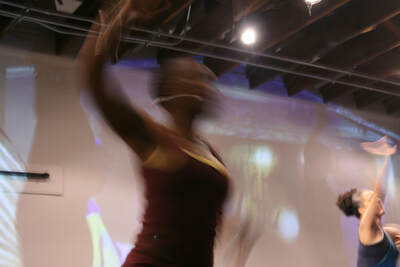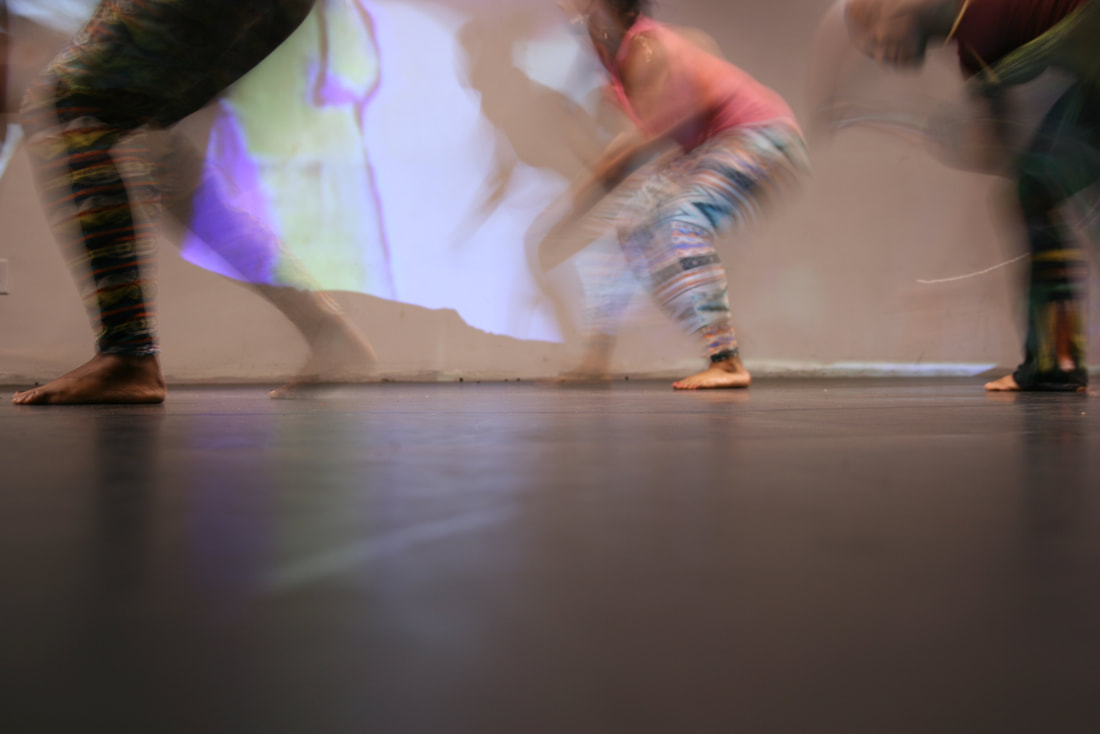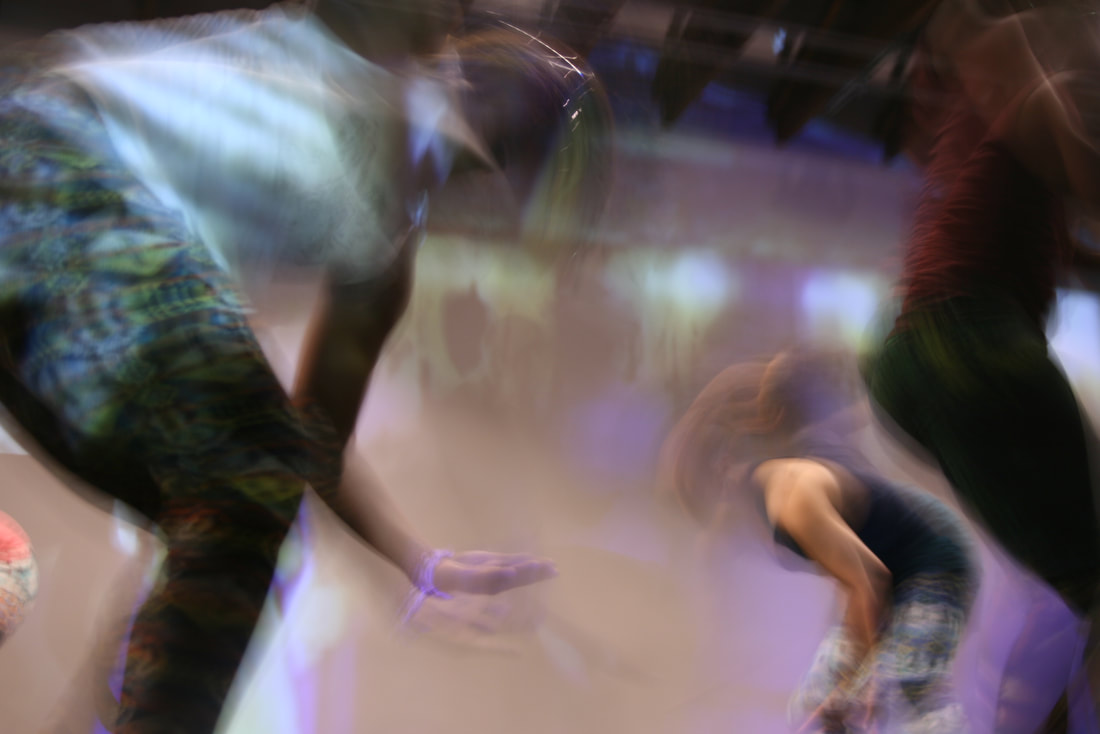Julie B. Johnson, Phddance artistEducator
MOVING OUR STORIES VALUES:
Focusing not just on the performance of dance, but also on its transformational nature, we discover what the dance does -- how it changes us at the level of the body and then ripples outward to our communities and beyond. By delving into embodied memory together, we work to recover that which was lost, forgotten, or erased. We map its movements in our bodies, give it shape and sound and breath and sometimes words, and we try our best to let it go when necessary, making way for new experiences, and new feelings in the body. Our dance becomes an affirmation, a communal expression of survival, discovery, and joy. We welcome all to celebrate with us.
- Dancing Together: Creating shared or intersecting experiences - even if just for a moment - that bring to light our similarities and differences.
- Dance Practice as Inquiry & Research = What can moving our bodies reveal about ourselves, each other, and the world around us? What can it help us discover about our relationships to constructs of identity, to community, and to sociocultural, political, and historical contexts? How can dance help us understand how we uniquely (individually and collectively) navigate through the world?
- Centering the Body & Lived Experience = We place our humanity, our personhood, at the center of our inquiry and creative processes - our dance circle. All bodies in the circle are honored. The uniqueness of each person -- their perspectives, embodiment, and daily lived experiences -- gives shape to the circle. We uphold the body as a knowing body, a site of intelligence, cultural production, and discovery.
- Radical Sistering = We lift up the concept of sistering as a verb from Toni Cade Bambara and other Black feminist artists, activists, and scholars. We uphold Black women's right to exist in our bodies, in our environments, in our communities, beginning by claiming our space on the dance floor. We witness and celebrate each other.
- Social Justice = We engage in dance as a means to analyze oppression -- how we are impacted by and implicated in it. We examine how our dancing bodies can make visible, disrupt, challenge, or dismantle systems powered by racism, patriarchy, and capitalism. We commit to using our creative skills, artistry, and knowledge, towards collective action, and to dreaming, imagining, innovating, and creating new liberated futures.
Focusing not just on the performance of dance, but also on its transformational nature, we discover what the dance does -- how it changes us at the level of the body and then ripples outward to our communities and beyond. By delving into embodied memory together, we work to recover that which was lost, forgotten, or erased. We map its movements in our bodies, give it shape and sound and breath and sometimes words, and we try our best to let it go when necessary, making way for new experiences, and new feelings in the body. Our dance becomes an affirmation, a communal expression of survival, discovery, and joy. We welcome all to celebrate with us.
MOVING OUR STORIES PROCESS:
|
Workshops
Moving Our Stories workshops are interactive experiences for participants from all walks of life. Through movement, writing, drawing, observation, and discussion, we explore our own stories, share with them each other, and create new stories together. Participant-driven activities oscillate from individual to collective explorations. Each participant brings their unique personal history and embodied knowledge. This allows for all who attend to engage deeply - dancers of all skill levels, dance enthusiasts, and anyone ready and willing to move their bodies to best of their ability are welcome to participate! Workshops are designed in collaboration with community partners -- and structured around a particular theme -- to help explore how dance can address their particular interests, needs, and goals. |
|
Choreographic Process
Moving Our Stories participants generate movement through the communal investigation of embodied memory - exploring, sharing, and moving our stories together. As a choreographer, this process allows me to focus on:
We embrace storytelling as a radical act, a social justice practice. Sharing, documenting, and archiving personal and collective narratives is vital for communities whose histories have been historically (and continue to be) marginalized, skewed, erased. Dance -- a way of being in, thinking about, and creating change in the world -- allows us to claim agency over out stories, starting with our own bodies. |
Proudly powered by Weebly


